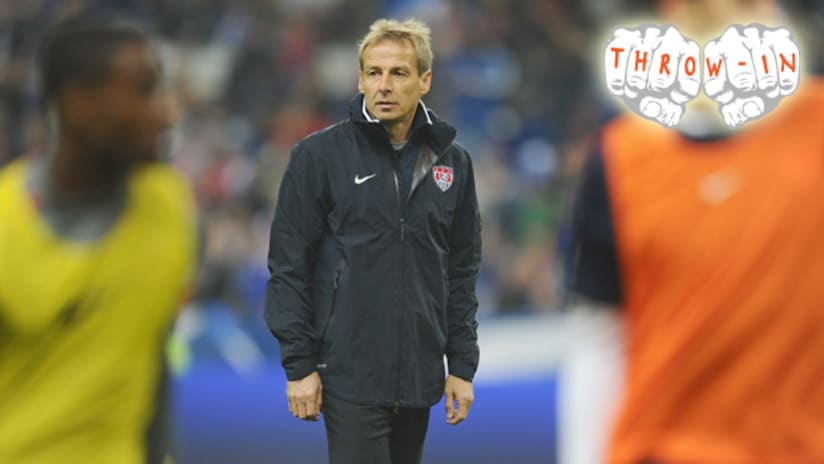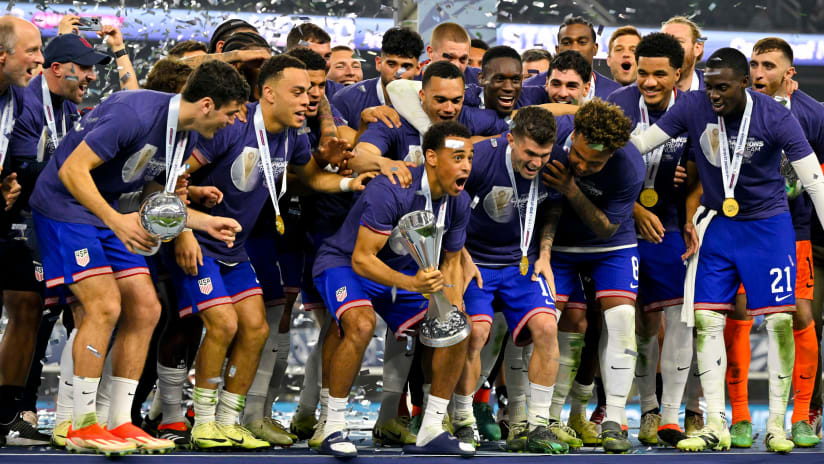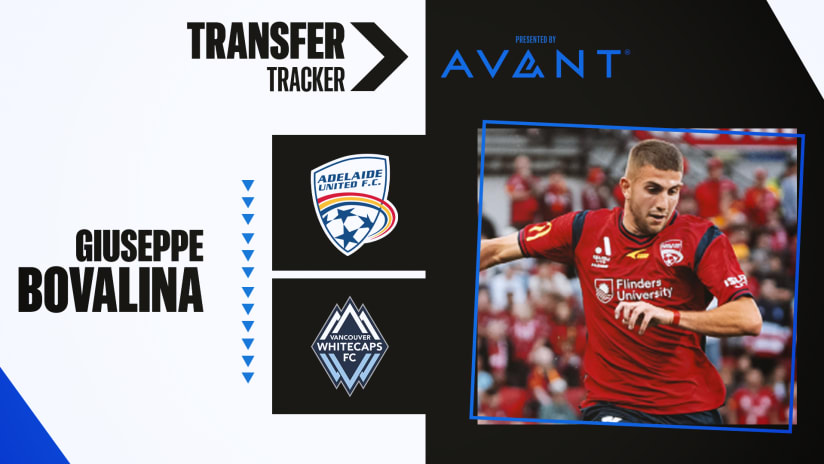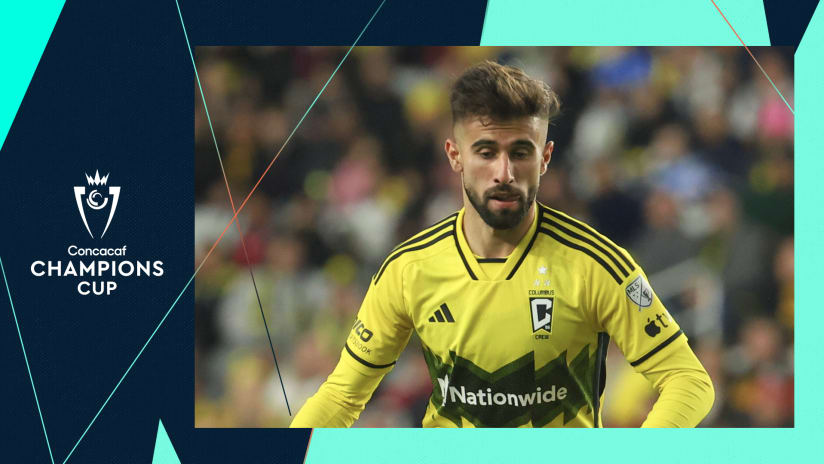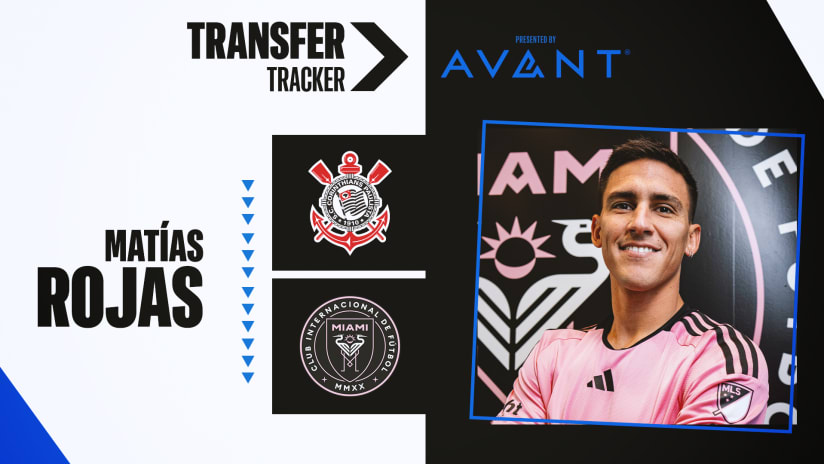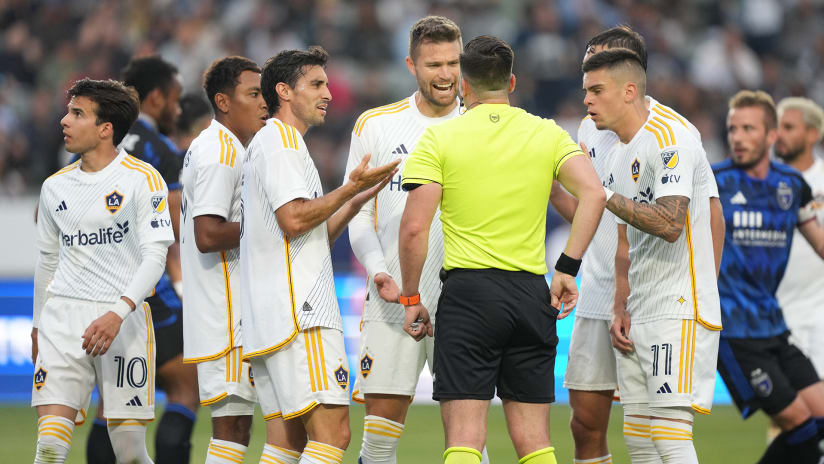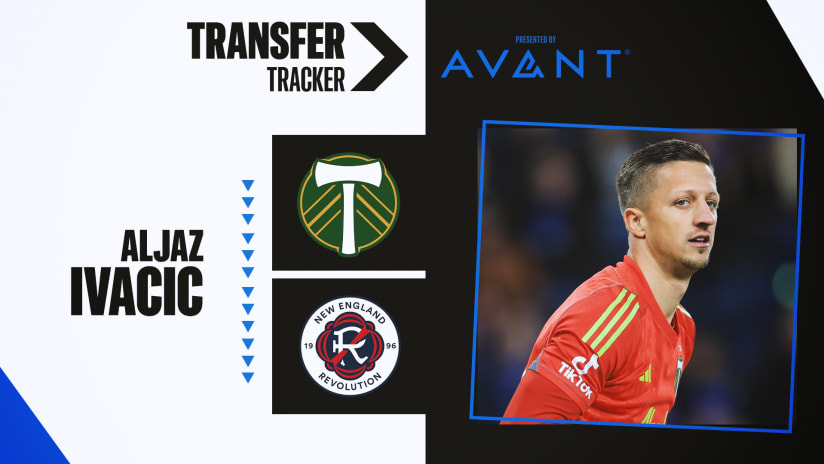In terms of international soccer, six months on the job for a head coach is an eternity. It’s one-eighth of the way through a World Cup cycle (or in Sven-Göran Eriksson’s case, time to start looking for the next opportunity).
Yet that’s where we are in the Jurgen Klinsmann Era. It’s been exactly half a year since the German icon took the reins of the US national team to much fanfare and hoopla. It’s still early in his tenure, but with the USMNT opening World Cup qualifying in five months, it’s officially business time.
So how are we feeling about things these days? Early on, it was giddiness mixed with great expectations. Here was a guy with extensive success on the world stage bringing fresh ideas to the US system. Two months later, it was frustration at a lack of progress, a perception of ideas without execution and worries that maybe we’d jumped the gun.
The reality is probably somewhere in between following Wednesday night’s 1-0 victory in Panama to close January camp, a result that brings Klinsmann’s record as US head coach to an even 4-4-1. Yes, it was the US “B” team, but it also marked a third straight victory for the USMNT – something that’s only happened twice over the past three years – and a feeling that maybe some progress is finally being made.
What all US fans finally have started to realize in recent months is 100 percent correct: Klinsmann is not a miracle-worker. He is not going to waltz into the US set-up and reinvent the wheel to the point where the national team is flying down the pitch in a seamless 4-3-3, playing tika-taka fútbol.
He’s not going to transform the US into a World Cup winner in one cycle, either (though we’re sure expecting him to build off our previous success). And he’s not going to re-envision the entire US system from top to bottom, turning us into a footballing powerhouse.
WATCH: Klinsmann discusses his philosophy
But wait, isn’t that what he was hired for? Well, sort of. The expectations that one man can make a program that really only has 25 years of modern history in the game into immediate peers with Spain, Brazil, Germany is a little misplaced.
Somehow, however, we’re all still caught up in the mystique of The Klinsmann Way, what many of us still perceive to be sweeping changes within the system.
Tactically? We’re running a new, fast-paced attacking philosophy that’s being preached top down to all levels of US Soccer, with words put to paper by none other than ex-US captain Claudio Reyna. And we’re seeing bizarre new drills run in training, from the "six-goal game" exercise that preaches lateral movement as a team, to lengthy work with resistance belts.
Fitness-wise? Our players are being asked to work harder than many of them are used to, with three-a-day training sessions that involve everything from the dreaded V02 max testing to yoga sessions. Days during the just-wrapped January camp routinely began at 8 am and didn’t end until past 9 pm.
Dedication-wise? Klinsmann has come out and said that American players take too much time off during the offseason and need to be playing 12 months a year – that’s why he’s arranged loans or training spells for nearly a dozen national-teamers.
Is any of this new? Not really. Every coach comes in with his own ideas of how to do things and his own philosophies to put into practice. So for what, exactly, is US Soccer paying Klinsmann a reported $2.5 million a year?
Try this touchy-feely concept on for size: He’s a “soccer life coach.”
The new ideology of the Klinsmann Era is less about what happens on the field or in the gym – despite some of the changes we’ve all noticed. It’s more about what American players do when they’re not on the pitch.
That’s what made this January camp so telling. When Klinsmann was able to get in front of a group of players who don’t have a ton of international experience, he was more able to get his core beliefs across and tried to begin to mold green players to match that philosophy.
That’s the reason, in part, that so much of January camp was dedicated to holistic pursuits like nutrition lectures and motivational speakers, for example, as much as it was to intense physical exercises a week before the players even kicked a ball. For Klinsmann, an international-caliber player needs to be a well-oiled machine that lives and breathes the game. He needs to be in top physical condition all year round and he needs to make smart decisions when he’s not in uniform.
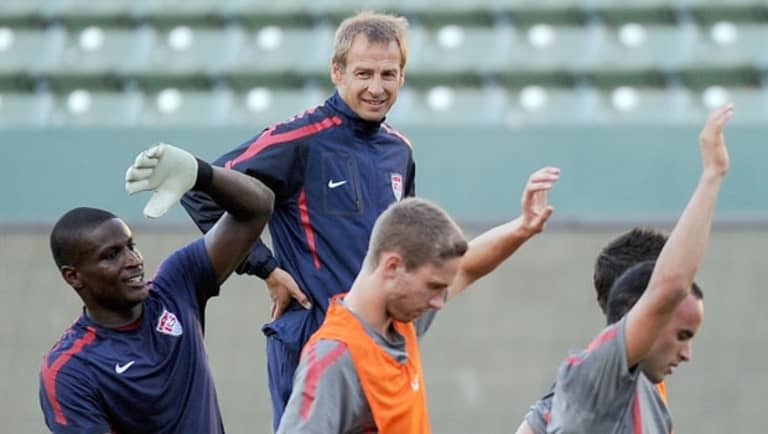
But the touchy-feely part that most of us aren’t used to is the fact that Klinsmann doesn’t want to ram this down players’ throats (despite what many exhausted January campers will tell you). He wants to enable them to be motivated on their own. He wants them to make their own smart decisions to get the most out of themselves.
“They’re smart,” Klinsmann told MLSsoccer.com at the Home Depot Center last week. “They want to get to that level eventually, but they also now understand it’s only going [to happen] with hard work and with a mind set that basically dedicates their lives to the game, to the job. So it’s a 24-7 commitment they’ve got to give if they want to get to that level.”
How are we going to know if this is working? Many of the players say it already is.
“Eating healthy, doing the right things off the field so when you’re on it, you’re 100 percent,” Benny Feilhaber explained to reporters after last week’s scrimmage with the US U-23s. “All those things have been really implemented strongly in the last [few] weeks and I’m sure that a lot of that has stuck with a lot of players.”
You can be your own judge for the time being. The US team that will take the field when CONCACAF qualifying starts up in June will likely be made up of most of the players we expect to see, and we know what they’re capable of.
Will the Klinsmann Way bear fruit in Brazil three summers from now? That’s the hope and the dream. US Soccer is hoping it goes far past 2014, however.
“The guidelines for us are how to beat countries in the world who are playing the game,” the coach said. “If we want to play one day with them – and not only defend against them, we want to play with them one day – you’ve got to be better in every element of the game.”
Whether Klinsmann lasts that long to see it through is still the real great unknown.
Jonah Freedman is the managing editor of MLSsoccer.com. “The Throw-In” appears every Thursday.


